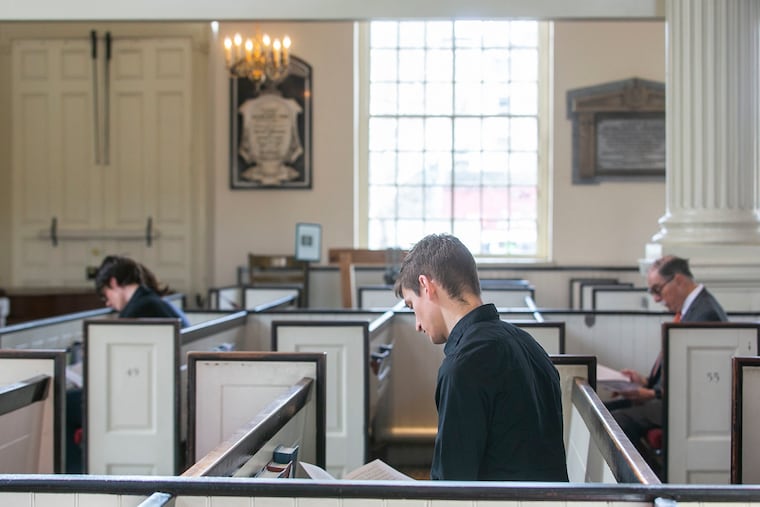Prayer can bring comfort amid coronavirus crisis — but stay home to do it | Opinion
Faith leaders have an obligation to tell congregations to pray in place.

News about the coronavirus is changing quickly. Go to inquirer.com/coronavirus for the latest information.
As a social epidemiologist, I study and teach the social causes and consequences of epidemics.
The coming days will be painful for many people we know and love. Given the momentum of the COVID-19 epidemic in the United States., our country is entering a period of crisis, which will reverberate through our communities and health-care systems.
We have the power to curb the unfolding disaster and to save lives, but we must act now.
Our houses of worship — our sanctuaries — are ideal sites for the spread of this deadly virus. It is a horrible irony that viruses thrive in community. When we kneel together, break bread together, sing together, mourn together, celebrate together — all are opportunities for us to get sick together, too.
» READ MORE: SHARE YOUR STORY: How are you staying connected to your community amid the coronavirus outbreak?
This has been evident in South Korea, where a surge in cases was linked to a religious community. Closer to home, Georgetown is on alert after a rector in a 550-member congregation fell ill with COVID19. In New York, 108 confirmed cases have thus far been identified in New Rochelle, with a temple at the center of the outbreak. The same rules apply in secular settings. One conference in Massachusetts gave rise to 77 of 95 cases detected in the state as of March 11. A single gathering can thrust an entire state or nation into an emergency.
Our faith communities must engage actively, vigorously, in social distancing measures now. We all must limit our in-person social contacts. This is especially important to protect the populations at elevated risk of adverse COVID-19 outcomes: the elderly, people with chronic illnesses, and people who are obese. Even people who are not in these defined “high risk” groups have an important role to play. Young people, too, are susceptible to infection, and their actions can either accelerate or slow the destruction caused by the epidemic.
I urge faith leaders to work together, putting faith in action for the health of our nation and our world. Congregations can contribute mightily to slowing this epidemic by suspending all collective in-person worship now. We must not wait for mandates from our elected officials.
Please encourage your members to pray and observe only with their immediate family members, in their own homes. Understanding that religious law and tradition may lead you in another direction, I ask you to join together, across faith traditions, in a collective action to save lives. We must reshape the contours of worship for this new and difficult day.
Every single infection prevented will prevent countless others, and will save lives. These steps will also free up beds in our hospitals, so that the sick and the dying can receive adequate attention and care. We must not delay another day. We all have the power to save lives, and we can do it by praying in place.
Carolyn C. Cannuscio is an associate professor of family medicine and community health at University of Pennsylvania Perelman School of Medicine.